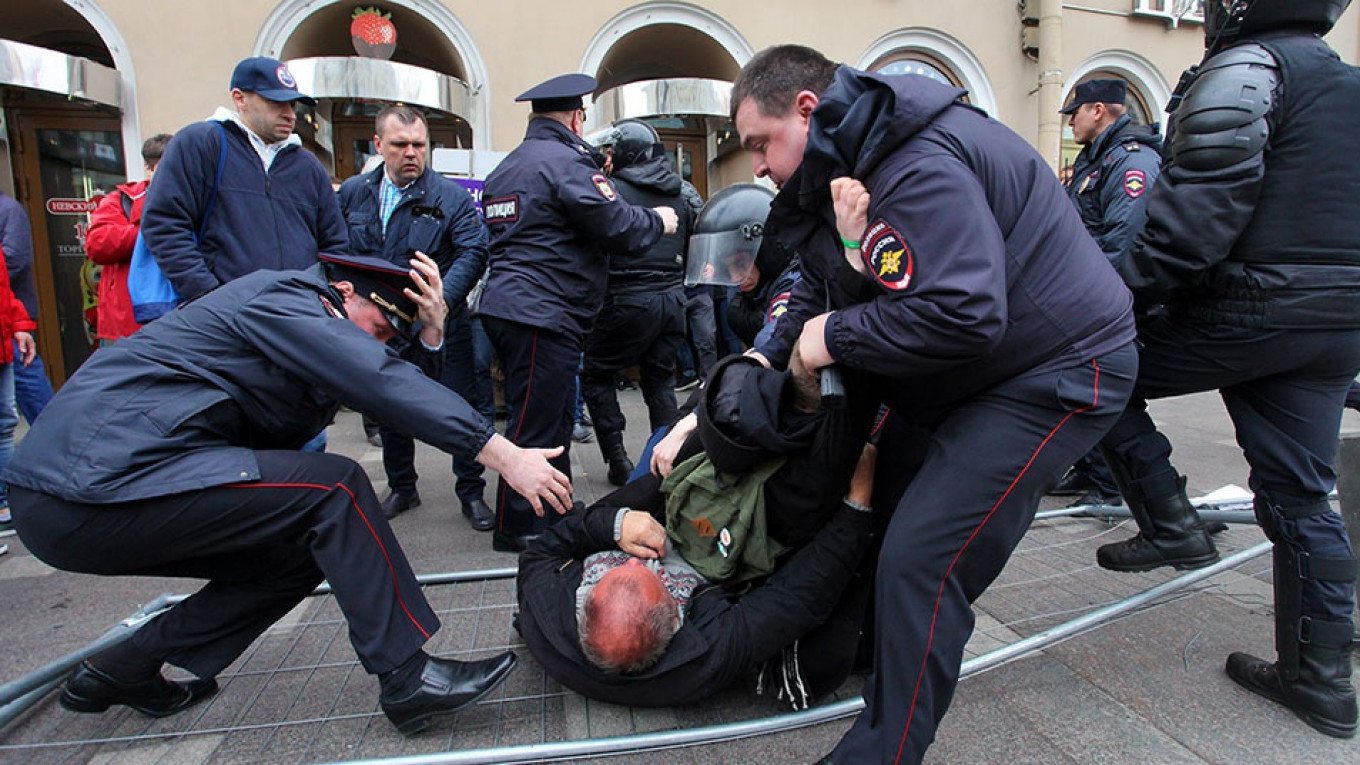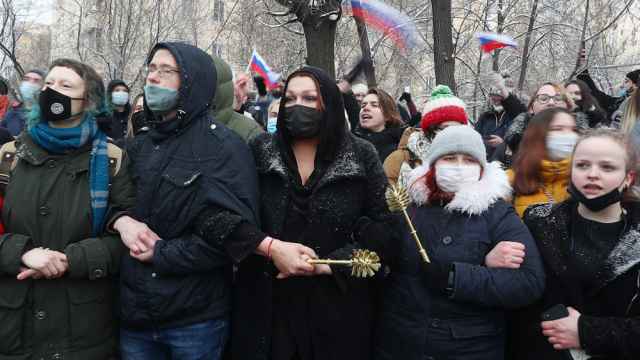A Levada Center survey conducted in October on the use of torture and mistreatment in detention centers across the country suggests that Russians are highly tolerant of violence and cruelty.
The survey was prompted by a report from the Novaya Gazeta investigative newspaper featuring a video shot by an employee of Yaroslavl Correctional Facility No.1, which captured the torture of Yevgeny Makarov, a detainee.
Seven percent of the survey’s respondents had heard about the incident. Another 23 percent had heard something about it without knowing the details. Some 69 percent — more than two-thirds — learned about the abuse from the survey itself.
According to Levada Center Director Lev Gudkov, these figures are not surprising given that a majority of Russians get their news from state television channels, which make almost no mention of torture and abuses in detention centers.
A Public Opinion Foundation survey conducted in August reached a similar conclusion. Currently, 66 percent of respondents " do not know anything" about conditions inside detention facilities, compared to 18 percent in 1997. The main source of this information was, and still, is, newspapers, television and radio broadcasts (59 percent in 1997 and 13 percent in 2018). In second place was personal experience and stories from relatives (4 percent and 17 percent respectively in 1997, and 4 percent and 12 percent now).
On the other hand, Gudkov said, interest in the subject is waning as violence becomes increasingly commonplace across society.
Although a majority, or 57 percent, of respondents of the recent Levada Center survey believe that intimidation and force should never be used against prisoners, Gudkov argued that they represent a powerless majority. Another 28 percent held that beating and intimidation were acceptable “in some cases,” while seven percent said they believed that prisoners have no right to expect normal treatment in general.
These responses reflect a growing acceptance of violence within Russian society. The same trend is evident from surveys about the reinstatement of the death penalty, the use of force against minorities, corporal punishment for children and violence within the family. According to Gudkov, many Russians accept the widespread notion that coercion and suppression are necessary forms of socialization in schools and the army.
This is partly the result of the state’s promotion of so-called “traditional values” and the patriarchal and rigidly disciplined nature of family life. It also reflects a culture of violence as a means of establishing order in society and the world – an approach that Russian leadership considers effective.
Vladimir Ruvinsky is a columnist at the Vedomosti business daily, where a version of this article was originally published. The views and opinions expressed in opinion pieces do not necessarily reflect the position of The Moscow Times.

A Message from The Moscow Times:
Dear readers,
We are facing unprecedented challenges. Russia's Prosecutor General's Office has designated The Moscow Times as an "undesirable" organization, criminalizing our work and putting our staff at risk of prosecution. This follows our earlier unjust labeling as a "foreign agent."
These actions are direct attempts to silence independent journalism in Russia. The authorities claim our work "discredits the decisions of the Russian leadership." We see things differently: we strive to provide accurate, unbiased reporting on Russia.
We, the journalists of The Moscow Times, refuse to be silenced. But to continue our work, we need your help.
Your support, no matter how small, makes a world of difference. If you can, please support us monthly starting from just $2. It's quick to set up, and every contribution makes a significant impact.
By supporting The Moscow Times, you're defending open, independent journalism in the face of repression. Thank you for standing with us.
Remind me later.






